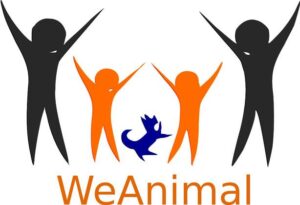Animal Assisted Interventions Centers in Italy
What are assisted interventions
Animal-Assisted Interventions (IAA) have therapeutic, rehabilitative, educational and recreational value and involve the use of domestic animals belonging to the Donkey, Horse, Dog, Cat and Rabbit species and are aimed mainly at people with speech disorders. physical, neuromotor, mental and psychological, depending on any cause, but can also be addressed to healthy individuals. The correct application of the IAA requires the involvement of a multidisciplinary team composed, depending on the type of intervention, of healthcare, pedagogical and technical figures with different tasks and responsibilities, specially trained and who are included in the national reference register for the IAA.” . (taken from the Introduction to the National Guidelines) Centers providing Animal Assisted Interventions are an essential element in providing therapeutic services playing a crucial role in ensuring that such interventions are ethical, safe and effective, improving people’s quality of life and contributing to the well-being of the local community.
Talking IAA centers

IAA centers and the territory
Centers that provide Animal Assisted Interventions (IAA) can have a positive impact on the promotion of local culture and tourism. They can attract travelers interested in unique and cultural experiences, support the local economy and raise awareness of culture and animal welfare.
- Attractiveness of the Territory: IAA centers that use animals or are located in natural contexts can increase the attractiveness of the territory for tourism. People may be interested in visiting the area to participate in IAA sessions or simply to observe the animals involved.
- Tourist Events and Activities: The centers can organize events, demonstrations or activities related to the IAA that attract tourists. These events can contribute to the local economy and promote the culture of the area.
- Sustainable Tourism: IAA-related tourism can be promoted as a form of sustainable tourism. For example, if the center promotes animal welfare and adopts sustainable practices, this can attract environmentally conscious tourism.
- Promotion of the Local Community: Centers can collaborate with the local community, offering opportunities for involvement and work. This can help build a sense of community and promote local culture.
- Education and Awareness: IAA centers can play a role in educating tourists about IAA practices, the relationship between humans and animals, and the importance of animal welfare. This contributes to raising awareness of the culture of the area.
- Promotion of Health and Wellbeing: If IAA centers offer services related to mental health and well-being, this can attract tourists interested in improving their health while visiting the area.
- Links with the Local Tourism Industry: Centers can establish partnerships with the local tourism industry, including hotels, restaurants and travel agencies, to offer tourism packages that include IAA-related experiences.
Guidelines
(…) In Italy, pet therapy had already been officially recognized as a form of treatment by the Decree of the President of the Council of Ministers on February 28, 2003, which adopted the Agreement of February 6, 2003, between the Minister of Health, the Regions, and the Autonomous Provinces of Trento and Bolzano regarding the well-being of companion animals and pet therapy, as proposed by the Minister of Health. Despite this recognition, for many years, there was a lack of specific legislative reference in this area. Therefore, it was from these premises that the Center of Reference for Behavioral Sciences and Mental Health of the Higher Institute of Health, the National Reference Center for AAI, and the Ministry of Health established a technical expert committee in 2009 with the aim of addressing the legislative gap in the field of Animal-Assisted Interventions (AAI), standardizing operational protocols, and harmonizing the activities of professionals engaged in this type of intervention. A concerted effort was made to develop “National Guidelines for Animal-Assisted Interventions (AAI),” which were approved by the State-Regions Conference in March 2015.
At the core of this significant document is the belief that AAI should be based on scientific criteria and require “the application of protocols that encompass patient/user care, project development, goal definition, periodic result assessment, and the ability to work in teams by specialists who often come from very different scientific and cultural backgrounds.” Operators should receive specific training in the field of AAI at recognized specialized centers and be included in a national list. (…) (cit. introduction to the national guidelines)
In Collaboration with

Lorena Lelli
Lorena Lelli, founder and president of the Social Cooperative "La Città degli Asini," has been involved in Animal-Assisted Interventions (Pet-Therapy) since 2008. As the administrator, director, and instructor at the training institution "La Melagrana Centro di Formazione Professionale," she organizes and promotes training courses in the field of Animal-Assisted Interventions, following the guidelines set forth in National Guidelines 60/CSR of March 25, 2015, as well as their regional modifications and applications. The organization is certified under the ISO 9001:2015 Quality Management System for "Designing and Delivering Training Courses" in the IAF 37 sector.
In 2011, she became a member of the National Commission on Animal-Assisted Interventions at the Istituto Zooprofilattico delle Venezie, the National Reference Center for Animal-Assisted Interventions in Legnaro.
Lorena Lelli was invited to participate in the States General of Health by the Minister of Health, On. Beatrice Lorenzin, on April 8-9, 2014, in Rome.
She is also an instructor at Anapia Veneto, teaching in the course titled "Social Agricultural Company: Identity, Characteristics, and Development Potential." Her presentation is titled "Operational Methods in Animal-Assisted Interventions - Therapeutic, Educational, and Recreational Paths with Donkeys - Regulatory Framework and National Guideline-Based Design of Interventions."
In 2016, she was a speaker at the conference "Animal-Assisted Interventions - Therapeutic and Educational Opportunities" held at the University of Verona, Department of Human Sciences.

Camilla Silibrandi
President of the National Association We Animal
Veterinarian Expert in AAI (Animal-Assisted Interventions) and Animal Welfare she has been working in the field of AAI as a Veterinarian for AAI projects for many years. She is in charge of the Specialized Center at the Social Cooperative "La Citta’ degli asini-Verona" and is a member of the scientific secretariat at the La Melagrana Training Institution.
She serves as the President and Coordinator of activities for the national AAI Operators Network, WeAnimal. She collaborates with the Municipality of Verona and the Veterinary Medical Association on topics related to Urban Zooanthropology.
She also works with public and private entities to develop programs and initiatives in the field of Animal Welfare. She is the Provincial Secretary of the Veterinary Medical Association in Verona.
Camilla has been involved in AAI projects as a Project Veterinarian and at AAI centers since 2005. She served as a consultant and collaborator with the Istituto Zooprofilattico delle Venezie and the National Reference Center for AAI from 2008 to 2014. She has been teaching specialized courses in AAI and urban zooanthropology since 2007. She has teaching experience in the field of zooanthropology, conducting courses for professionals in the canine industry and dog owners.














